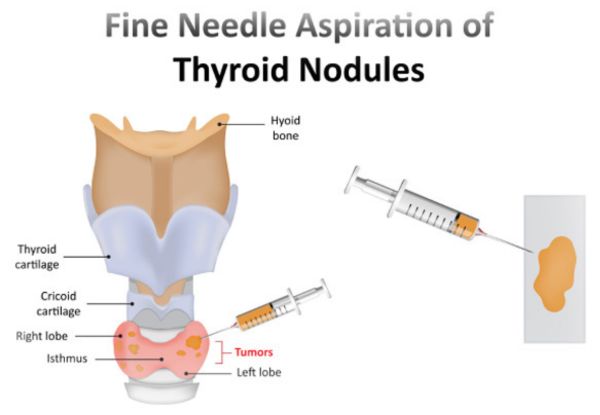
1. Introduction
Early detection is essential for properly controlling and treating many health disorders. One important tool in this process is the Fine Needle Aspiration Cytology (FNAC) test. At Midas Care Clinic, we emphasize the role of the FNAC test in identifying diseases before they become serious. But what exactly is FNAC, and why is it so essential for early detection? Let’s dive into the details.
2. What is an FNAC Test?
FNAC stands for Fine Needle Aspiration Cytology. It’s a diagnostic procedure that involves using a thin, hollow needle to collect a small sample of cells from a suspicious area in the body. This sample is then examined under a microscope to help diagnose various conditions. Whether you’re looking for an FNAC test in Vasai or an FNAC test in Virar, this procedure provides crucial insights into your health.
3. How FNAC Works
The FNAC test is a simple, minimally invasive procedure. Here’s how it generally works:
- Preparation: The area to be examined is cleaned and, if necessary, numbed with a local anesthetic.
- Sampling: A thin needle is inserted into the target area to collect a small amount of tissue or fluid.
- Analysis: The collected sample is sent to a laboratory where it is examined for any abnormalities.
4. Why FNAC is Important for Early Detection
FNAC plays a crucial role in detecting diseases early because:
- Accuracy: It provides valuable information about the nature of a lump or mass, helping in the early identification of conditions such as cancer.
- Minimally Invasive: FNAC is less invasive compared to other diagnostic procedures, reducing discomfort and recovery time.
- Quick Results: Results from an FNAC test are typically available quickly, allowing for faster diagnosis and treatment.
5. Common Conditions Detected by FNAC
FNAC diagnoses a wide range of diseases, including:
- Thyroid Disorders: Helps in identifying thyroid nodules and potential malignancies.
- Breast Lumps: Assists in distinguishing between benign and malignant breast lumps.
- Lymph Node Abnormalities: Useful for diagnosing infections, lymphomas, and other conditions affecting lymph nodes.
- Soft Tissue Masses: Helps in evaluating masses in soft tissues to determine if they are benign or malignant.
6. The FNAC Procedure: What to Expect
The FNAC procedure is straightforward and typically involves:
- Preparation: You may be asked to lie down or sit comfortably.
- Insertion: A fine needle is inserted into the area of concern, often guided by ultrasound for accuracy.
- Sample Collection: A small sample of cells or fluid is collected and then analyzed.
7. Benefits of FNAC
The FNAC test offers several benefits:
- Less Discomfort: Generally causes minimal discomfort compared to other diagnostic methods.
- Cost-Effective: More affordable than more invasive diagnostic procedures.
- Quick and Efficient: Provides quick results, enabling timely medical intervention.
8. Risks and Considerations
While FNAC is generally safe, there are some risks to be aware of:
- Minor Discomfort: Some patients may experience mild discomfort or bruising at the site.
- Infection: There is a small risk of infection, though this is rare.
- Inconclusive Results: In some cases, the results may be inconclusive, requiring additional tests.
9. After the FNAC Test
After your FNAC test:
- Care: You may need to follow specific care instructions, such as keeping the area clean.
- Follow-Up: Attend any scheduled follow-up appointments to review results and discuss next steps with your healthcare provider.
10. Conclusion
The FNAC test is a valuable tool for the early detection of various diseases. At Midas Care Clinic, we use FNAC to help diagnose conditions quickly and accurately, leading to better treatment outcomes. If you have concerns about any lumps or abnormalities, consider discussing the FNAC test with your healthcare provider to explore if it’s the right option for you.

